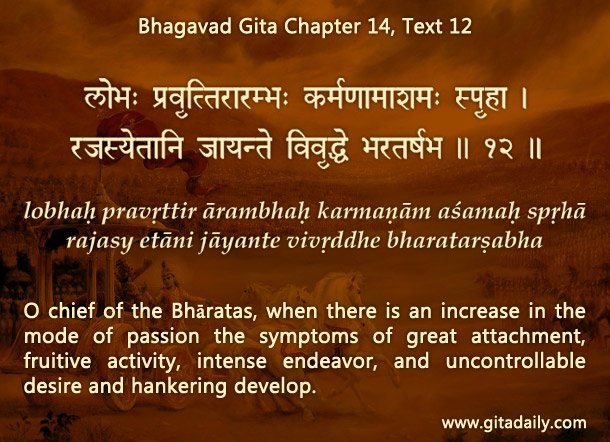Some people consider politics to be a dirty business that they would prefer to stay away from. Undeniably, politics often features distasteful manipulation. Yet equally undeniably, in every society, politics is inevitable.
Every society requires politics in the sense of a system for administration. Within such a system, unprincipled people frequently appropriate and misappropriate power. Their unsavory actions can make people averse to politics. Nonetheless, even if people stay uninterested in politics, politics will still be interested in them – the prevailing political system will continue to affect them.
Given the inescapable influence of politics, the Bhagavad-gita seeks to harmonize the political order of society with life’s ultimate purpose: to spiritualize human consciousness. The Gita’s interest in transforming society politically is evident in the purpose of Krishna’s descent: to establish dharma (04.08). Dharma has multiple meanings. Essentially, it refers to the spiritual order by which humanity can unite in love with divinity. Contextually, it also refers to the socio-political order that fosters spiritual order.
The Gita (04.02) lauds those leaders who spearhead a spiritually harmonious socio-political order. It addresses them as saintly kings (rajarishis): they were both rulers externally (raja) and seers internally (rishis). These kings would transmit spiritual knowledge not just to their citizens, but also to their successors, thereby creating a tradition of saintly kings. By empowering such leaders, Krishna establishes dharma – as he did by enthroning the virtuous Yudhishthira.
How does the Gita’s political pragmatism matter to us as individual spiritual practitioners? We can use our social influence, small or big, for making the prevalent polity more spiritually harmonious. When the political order is spiritually conducive, people in general can approach and apply the Gita more easily.
By thus contributing towards creating a spiritual polity, we can play our part to help establish dharma in society.
Think it over:
- What does dharma refer to?
- How did spiritually-minded rulers help establish dharma?
- How does the Gita’s political pragmatism matter to individual spiritual practitioners?
To know more about this verse, please click on the image
Explanation of article:
Podcast:


Leave A Comment